By Miva | September 25, 2019

See why top ecommerce brands use Miva’s no-code platform to run
multiple stores, manage massive catalogs, and grow their revenue.
By now, you’ve probably come across an everyday product that contains CBD. The once relatively unheard-of substance has seized the mainstream by storm, showing up just about everywhere, from highway billboards to the shelves of high-end beauty shops. This has resulted in a remarkable number of CBD business opportunities. In the United States, sales for CBD (also known as cannabidiol, a component derived from the hemp plant) are expected to reach a staggering $20 billion by 2024—the majority of which will come from retail stores.
Despite the growth and opportunities available, selling CBD can be complicated. To successfully start an online CBD business and take advantage of this opportunity, you’ll need to navigate different legal obstacles and create a memorable brand. In this article, we’ll discuss how to start a CBD business online, including a downloadable checklist to help you launch your business. At the end, you’ll find a whitepaper guide to help you generate profit from your CBD products. Consider this your CBD business starter kit.
According to surveys, about 64 percent of U.S. adults are familiar with CBD and 33% have already tried products containing it. While CBD is more popular among people in their 20s, 15 percent of people who use CBD are 60 years and older, representing a shift in perception across all generations.
The North American market alone constituted 12.8 billion of CBD sales in 2021. Fourteen percent of Americans use or have used CBD products…and that number is expected to rise as support for marijuana legalization continues to grow.
As CBD products become more diverse and accessible, there is an increasingly greater CBD business opportunity for online merchants to hop on the bandwagon of selling CBD, whether they want to be a manufacturer, dispensary, or wholesaler.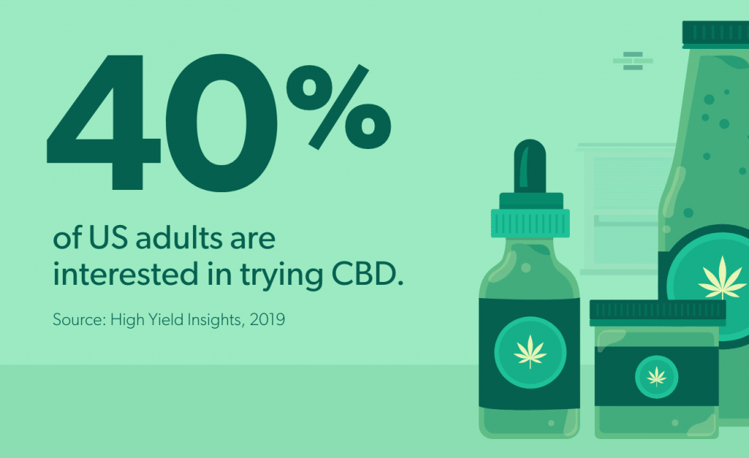
CBD, hemp, cannabis, marijuana…what’s the difference between these buzzing terms? “Cannabis”, “hemp”, and “marijuana” are generally used to describe plants and products derived from plants in the genus Cannabis. Cannabis contains compounds called cannabinoids. One particular cannabinoid, cannabidiol (CBD), is popularly associated with a variety of positive health and wellness effects. 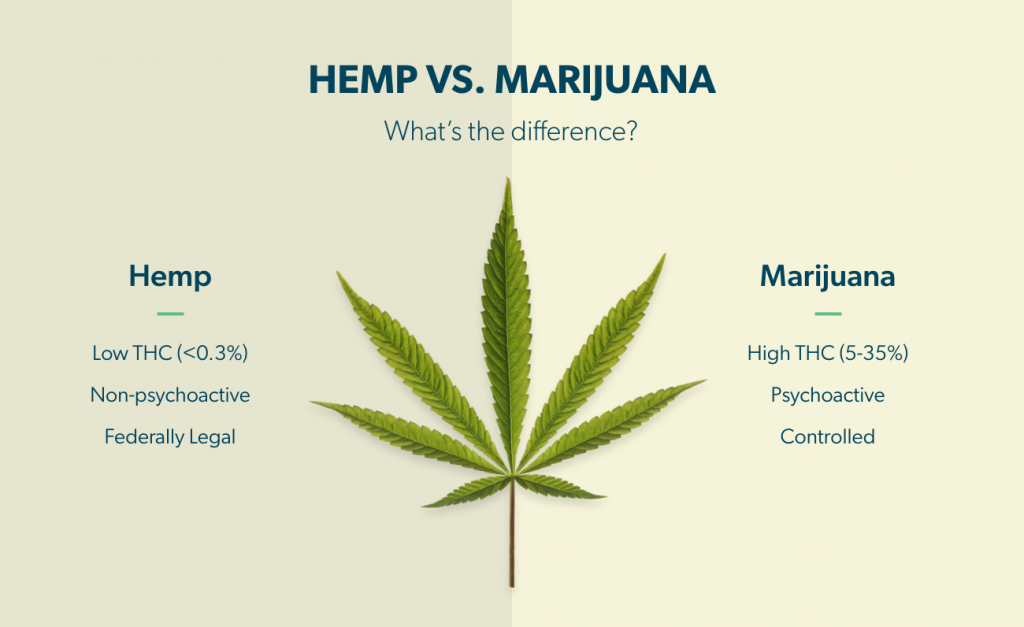
Unlike THC (tetrahydrocannabinol), a cannabinoid that produces psychoactive effects, CBD is non-psychotropic. What’s helped CBD take the ecommerce world by storm is that it contains very low traces of THC, making it easier to legalize and therefore find its way into everyday products.
Some of the most common types of CBD include:
The question that most sellers ask at the outset is almost always, "is it legal to sell CBD online?" So, is CBD legal? The answer can be complicated. CBD products are federally legal to sell online…but there’s a catch. Any CBD product available for purchase online must be made from industrial hemp or contain a THC concentration of less than 0.3%. Any cannabis-derived product is subject to FDA regulations, and requirements differ depending on the type of CBD product being sold.

In addition, the legality of various CBD business opportunities also vary from state to state, so you’ll have to comply with local laws. Some states allow marijuana-derived CBD, while others allow only industrial hemp-produced CBD. The safest method is to sell CBD sourced from hemp as it has lower traces of THC.
Policies around CBD ecommerce and paid advertising may change at any time. As an online merchant, you’ll want to monitor these movements closely and be prepared for any changes in CBD legality, advertising rules, and cannabis news in order to stay afloat in the industry.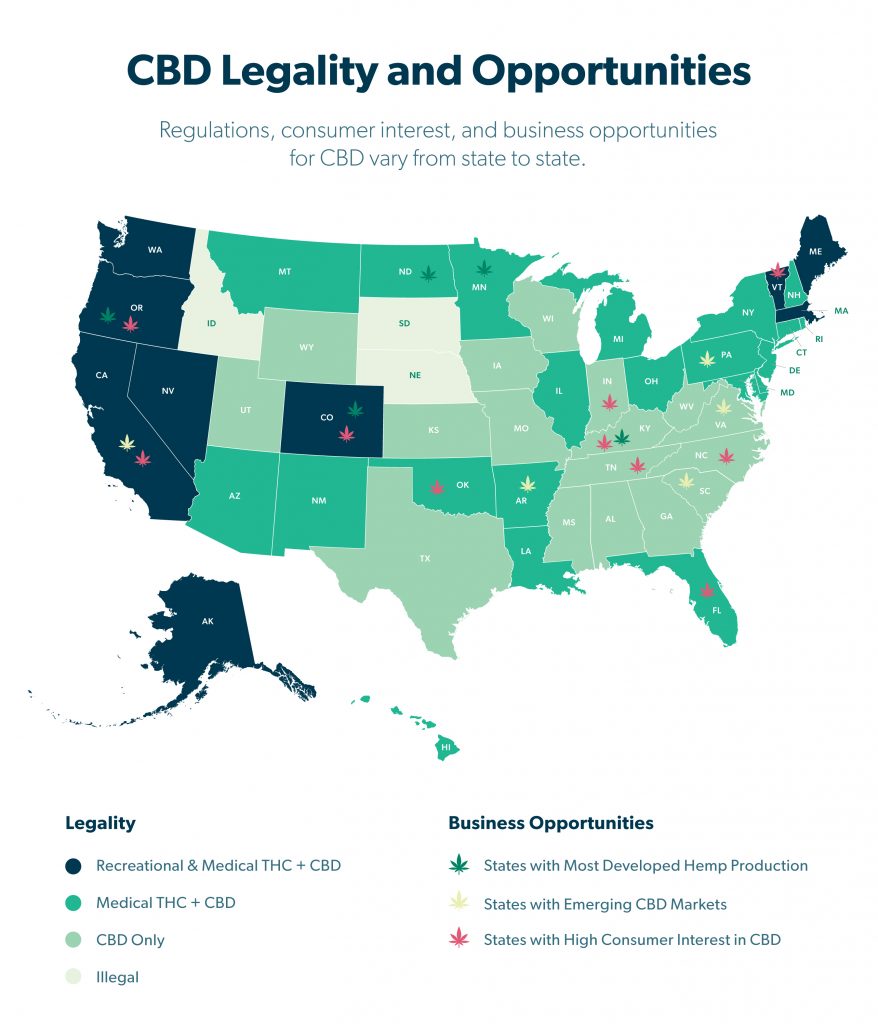
Many businesses make the mistake of promoting CBD as a miracle substance for health conditions like arthritis, Alzheimer’s disease, and even cancer. However, the FDA requires that businesses refrain from making disease-curing claims that are not backed by reliable and legitimate research.
Since marijuana has not been legalized on a federal level, reputable research on the purported benefits of cannabis is more limited. Making unsubstantiated medical claims about your CBD products is illegal and could put consumers at risk.
If you want to start your own CBD brand, messaging is important. It is in your best interests to avoid making any medical claims. Instead, shift your language to the quality of your CBD and the potential benefits of incorporating CBD into a wellness routine. 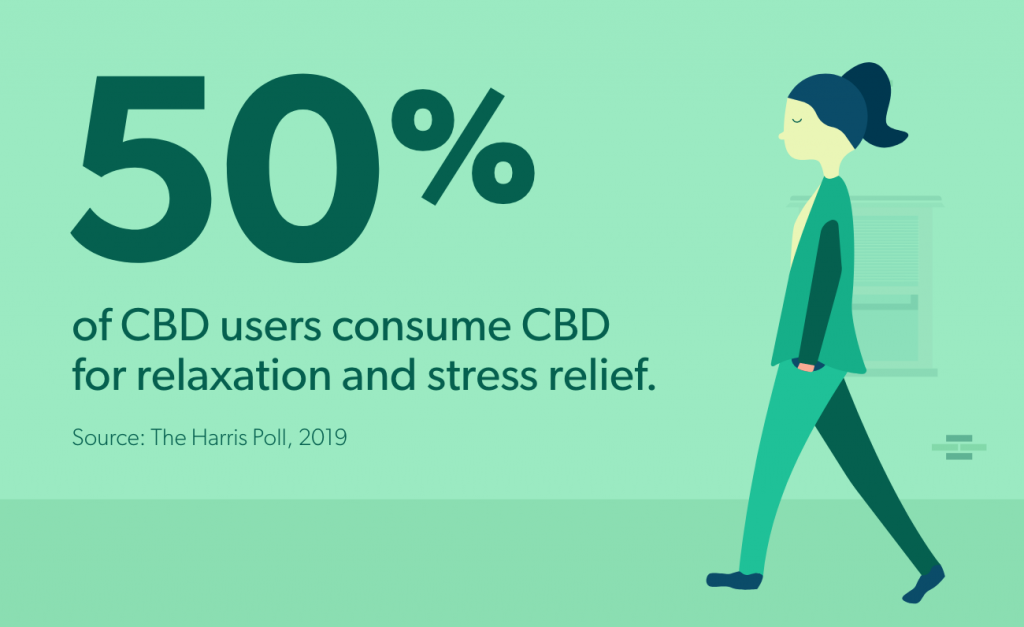
Once you’ve dialed in the legality of your products, it’s time to jumpstart your business. Here are some key steps to maximizing your CBD business opportunities and get ready to start CBD business online:
To sell CBD online, you’ll want to obtain a business license (as well as resale license if you plan to purchase your product from wholesalers). If you want to cultivate your own CBD, you’ll also need a license to grow hemp. Since licenses and permits are handled at the state level, you’ll need to discover the requirements for your state.
Despite the federal legalization of hemp, the discrepancy between federal and state laws makes it risky for many financial institutions to process hemp-related revenues. For many CBD ecommerce businesses, merchants may need to research alternative banks and credit unions that will handle their financial transactions.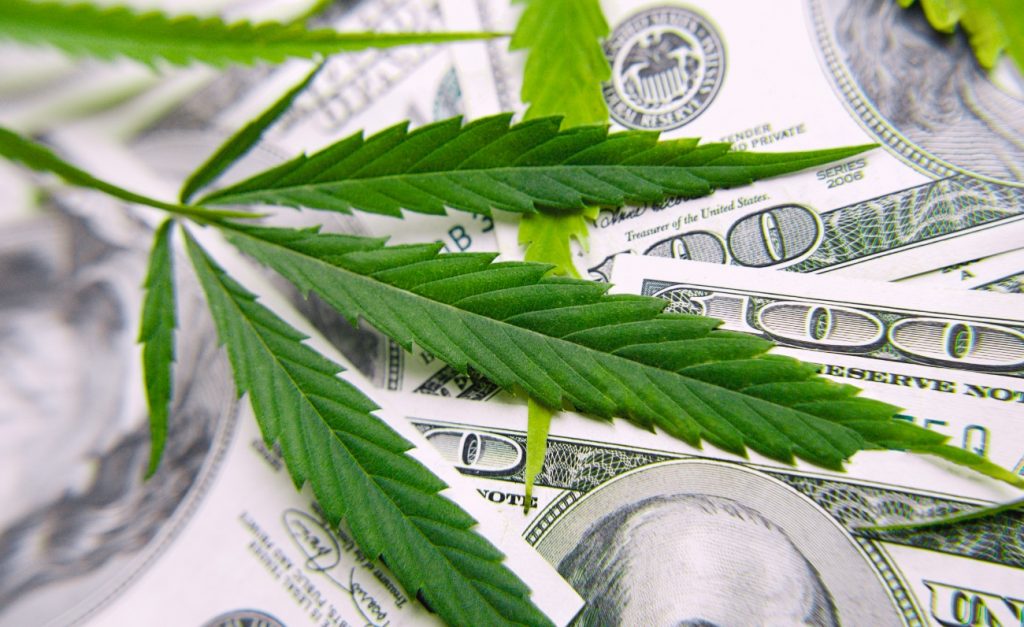
There are marijiuana investors who are keen on putting their money into CBD businesses, especially those with a strong business plan. Be sure to carefully select an investor that provides you with the right resources and flexibility to achieve your ultimate business goals.
Since the FDA has only approved CBD as a prescription drug to treat severe forms of epilepsy, your business will need to keep up with the latest FDA consumer updates to ensure the safety and quality of your products.
Determining the product costs and pricing for an emerging industry can be more tricky. A helpful metric is to judge CBD per milligram, or the amount of CBD you’re getting for the price. Successful CBD distribution relies upon sustainable yet competitive pricing. CBD can cost anywhere from $0.04 to $3 per mg, but ultimately your product and your brand positioning will determine your price.
Ready to launch your CBD business? Get started with this downloadable checklist:

Once your store is up and running, you’ll then be able to refine your products, enhance your marketing, and streamline your fulfillment strategies to scale your business.
If you’re not planning to cultivate your own hemp, your next option is to secure raw materials from a quality CBD distributor or supplier. Whether you’re reselling or creating your own CBD products, finding a reputable supplier should be your top priority.
When evaluating a CBD provider, you’ll need to understand some key details of their manufacturing process, including where they source their CBD, their extraction method, and the concentration of THC in their products (usually detailed in the “Certificate of Analysis” along with the plant species, and levels of CBD and THC). This ensures that your business has high-quality, legal products to sell to your customers. Should you wish to become CBD distributor, you'll need to master these quality control concepts.
Keeping up with the latest cultivation techniques will also prove useful for your business, as new practices can yield higher amounts of CBD and cut costs.
CBD sellers are considered “high-risk businesses”, meaning that many payment processors have calculated a high chargeback risk for their industry. As a result, many ecommerce and payment technology providers may opt out of supporting CBD sales. To find the right payment technology for your business’ needs, look for a provider that both supports CBD transactions and has experience working with other CBD merchants.
For commercial use, CBD is infused into products like edible foods, topical items, and tinctures (or herbal extracts). These products are often associated with treatment of sleep disorders, skin problems, and muscle pain, making them popular in the beauty, wellness, lifestyle, and even pet health industries.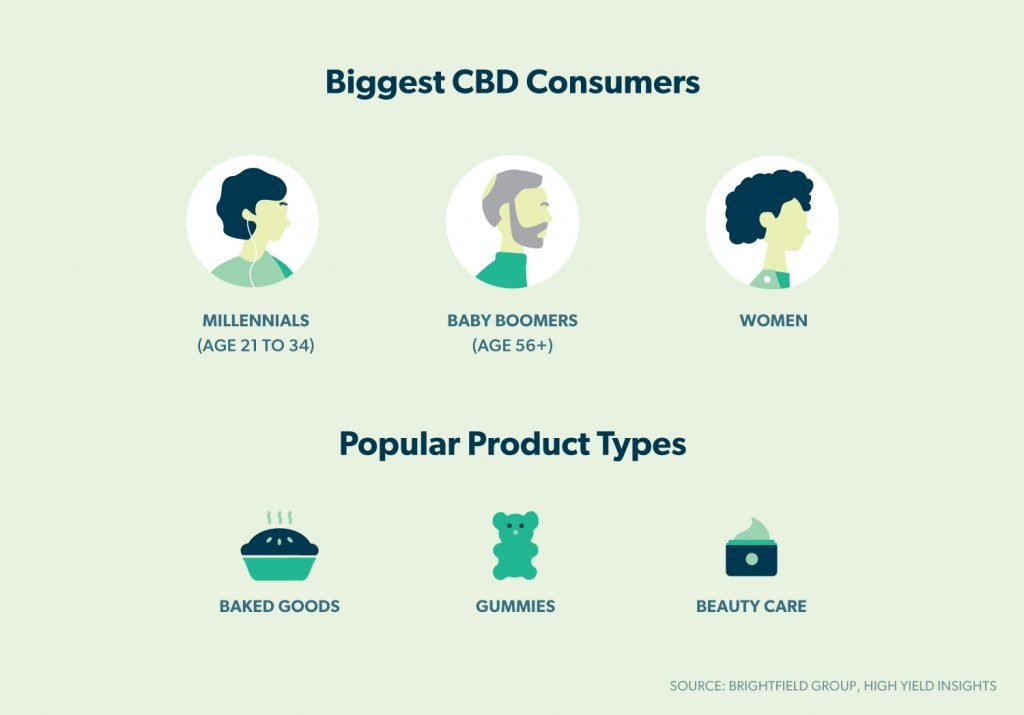
Surveys show that millennials, baby boomers, and women are the top consumers of CBD today, with first-time cannabis consumers growing up 140 percent in the past year. Because CBD has not reached a wider audience yet, there is great potential for bringing new customers to your brand. The consumable nature of CBD is also more likely to create repeat shoppers who purchase multiple times a year.
As CBD products saturate the market, your business’ unique branding can be your “secret sauce”, helping you stand out from the competition. Focus on your differentiators—what customers can get from you that they can’t find anywhere else. What sets your product apart? Why should customers purchase from you? Determine the need for your product and appeal to that need with brand benefits such as expertise, product quality, convenience, and curation.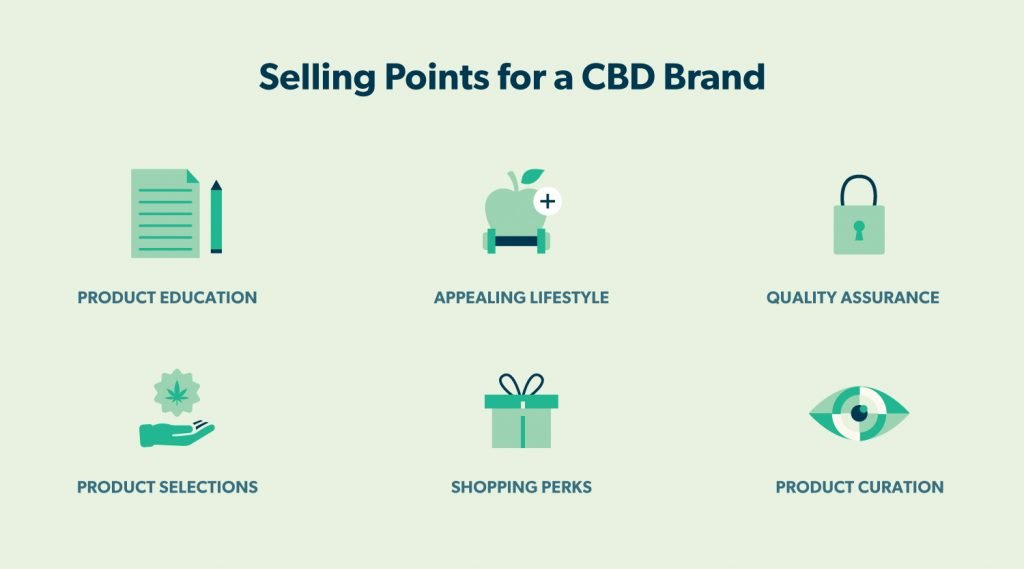
The bad news: CBD advertising is not allowed on many popular online ad platforms. The good news? Word-of-mouth marketing will be your best friend.
Many brands look to social media influencers, experiential marketing, and audio advertising to generate attention for their brand and to disperse product testimonials. For those who have a smaller marketing budget, consider soliciting reviews on free dispensary guide websites, many of which also cater to the CBD buying audience. Leveraging user content on these site is an excellent way to start CBD business without any advertising at all. 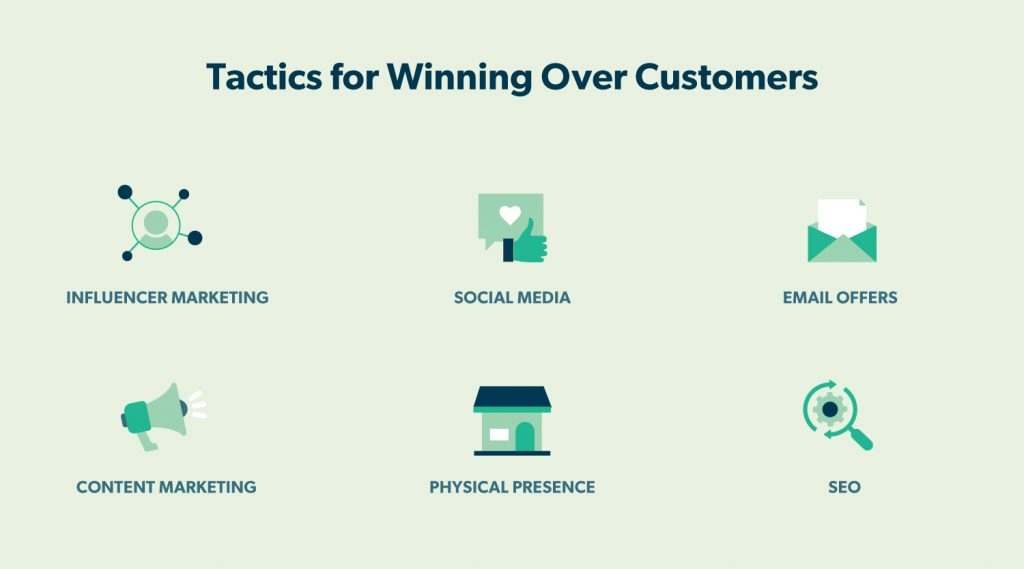
Position your brand as a leader by attending trade shows like the NoCo Hemp Expo and CannaGrow Expo. You’ll get the chance to survey the competition, expand your reach, and build important contacts that can lead to profitable business opportunities down the line.
Changing public opinions, growing consumer demand, and large sales forecasts make this a great time to experiment with selling CBD. However, your success as a merchant getting started with CBD ecommerce will also depend on a variety of other factors like your brand positioning, the types of products you sell, and the audience that you sell to.
Download our whitepaper below for actionable branding and marketing tips for building a successful CBD business and seizing market share in this fast-evolving industry. 
CBD demand is expected to increase within the coming years. Despite the challenges of this “high-risk” industry, entrepreneurs are taking advantage of CBD business opportunities and selling CBD to capitalize on growing customer interest. If government regulations lighten, the industry could reach new heights in profitability. While time will tell whether they have staying power, CBD products currently provide a promising market for forward-thinking retailers.
This blog was originally published on September 25, 2020 and updated on April 3, 2023.
Back to topNo worries, download the PDF version now and enjoy your reading later...
Download PDF Miva
Miva
Miva offers a flexible and adaptable ecommerce platform that evolves with businesses and allows them to drive sales, maximize average order value, cut overhead costs, and increase revenue. Miva has been helping businesses realize their ecommerce potential for over 20 years and empowering retail, wholesale, and direct-to-consumer sellers across all industries to transform their business through ecommerce.
Visit Website